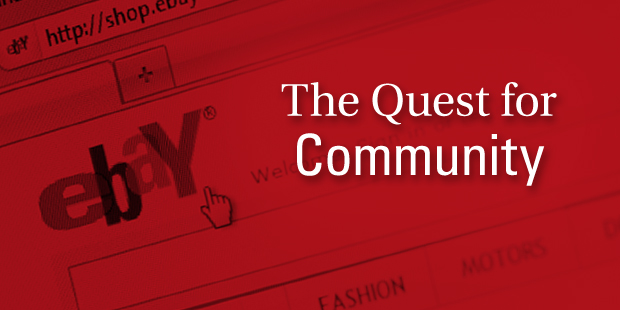
The Quest for Community
I am an eBay addict. I may need help. My most recent purchase is one of the first books published by my Ph.D. adviser. It has been missing from my library for 20 years. I got this copy for 50 cents. The postage cost more than the book. But for $2.50 I reclaimed my pedigree. At eBay, I feel like a kid in a candy store.
The online auction house is one of the wonders of the last decade. From 1995 to 1998, eBay did no outside advertising; yet it boasted 3.8 million registered users and grew from 289,000 items in 1996 to 2.2 million today. With a $23-billion market, eBay is now worth more than Kmart, Toys R Us, Nordstrom, and Saks combined.
eBay is so effective because its owners understand postmodern culture. It also alerts us to what the church must do to get the attention and attendance of postmodern people.
Just do it!
eBay makes shopping an experience. Journalist Stewart Alsop, analyzing the phenomenon, calls it “nail-biting, thrilling fun.” eBay works in our experience-oriented economy. What keeps shoppers returning to a store? Not just the products. As one patron said, leaving a new Greenwich Village eatery called Peanut Butter and Company, “This is very much an experience; it’s not just a sandwich.”
Postmoderns are not willing to live at even an arm’s length from experience. They want life to explode all around them. And the more extreme the better.
Tom Beaudoin, a Gen-X Christian with a theology degree from Harvard and a body piercing, says that piercing and tattooing “reflect the centrality of personal and intimate experience in Xers’ lives.” Tattooing is branding in a brand culture, the marking of a spiritual experience.
The pursuit of dreams, emotions, and extreme experience is not unique to this era. Every expression of romanticism in history has tilted toward the experiential. But never before has experience become the currency of a global economic system.

Tags: Community, Connect, Leonard Sweet











